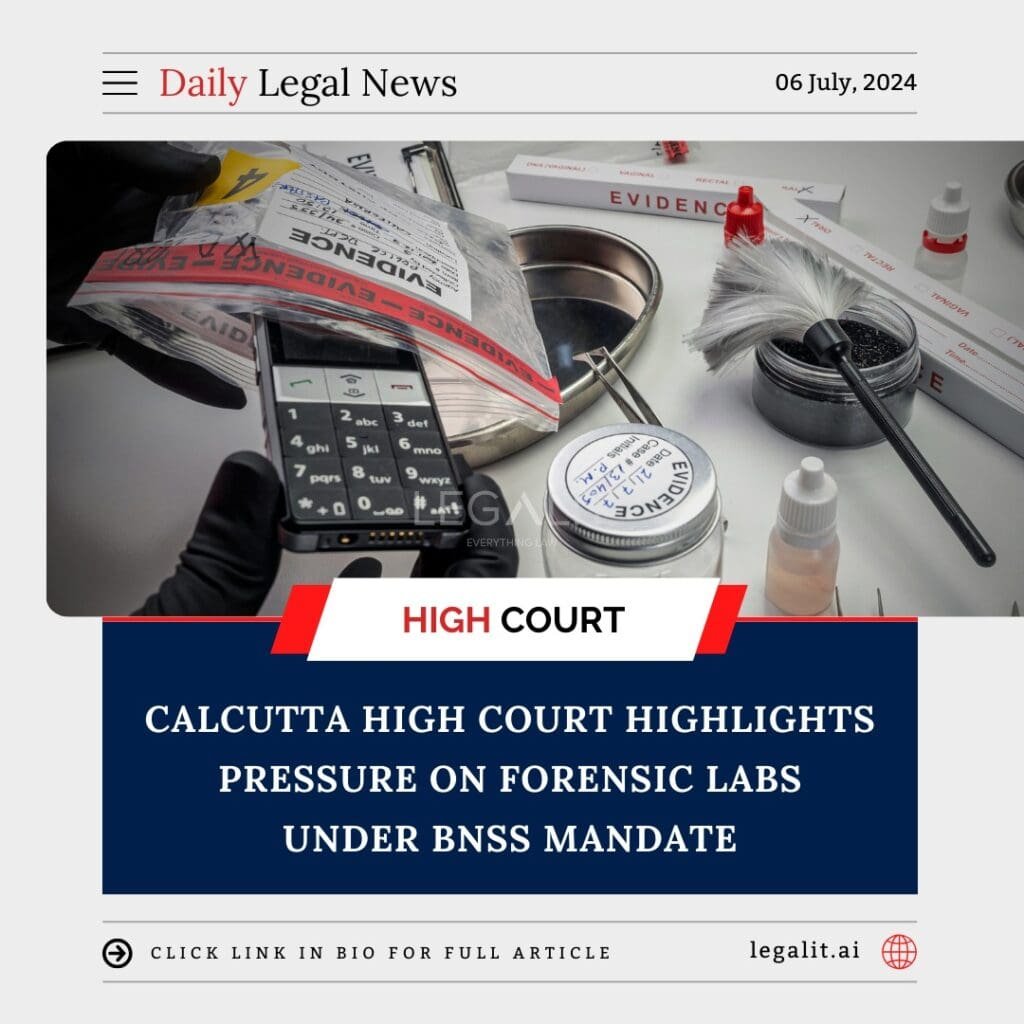
The Calcutta High Court has expressed concerns about the immense pressure placed on central and state forensic laboratories due to the Bharatiya Nagarik Suraksha Sanhita (BNSS) mandates. The BNSS, which replaces the Code of Criminal Procedure (CrPC), requires mandatory forensic analysis at crime scenes for offenses punishable by seven years of imprisonment or more. This new requirement is designed to modernize and improve the accuracy of criminal investigations but has led to significant operational challenges.
Key Points:
- Increased Workload:
- The BNSS mandates that forensic experts must visit crime scenes to collect and analyze evidence for serious offenses. This has drastically increased the workload on forensic labs, which are already struggling with existing caseloads and resource constraints.
- Operational Challenges:
- State and central forensic labs are facing difficulties in managing the surge in cases requiring forensic analysis. The lack of adequate infrastructure and trained personnel to handle the increased volume is a major concern.
- Judicial Concerns:
- The Calcutta High Court emphasized the need for substantial investments in forensic infrastructure and workforce to meet the BNSS requirements effectively. The court highlighted that without adequate resources, the forensic mandate could lead to delays in investigations and impact the overall efficiency of the criminal justice system.
Implications:
The ruling underscores the importance of bolstering forensic capabilities to ensure that the objectives of the BNSS can be met without compromising the quality and timeliness of criminal investigations. It calls for immediate action to enhance forensic facilities and address the resource gaps that hinder effective implementation.